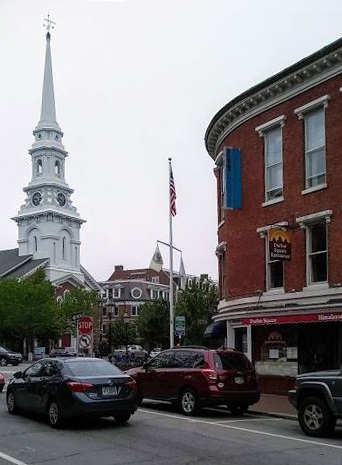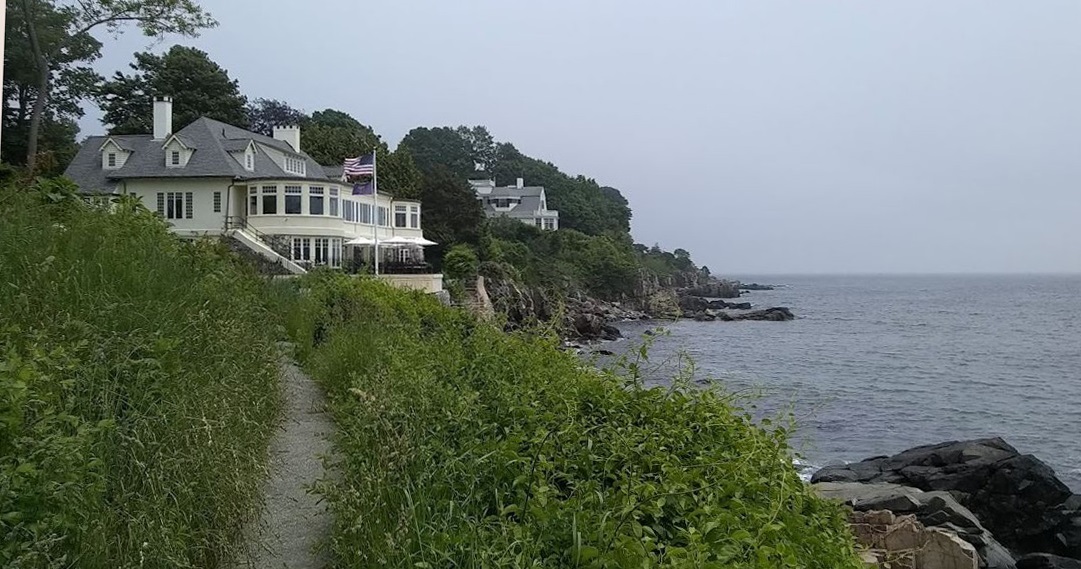
Your suggestions in Comments.


Your suggestions in Comments.
A German Kurd looks at “parallel” societies within a single country:
The largest group in Germany with an immigrant background – after the Aussiedler or ethnic German resettlers – are the Turks, who were once recruited as guest workers and, unlike many Portuguese, Spanish and Greek economic migrants, did not return to their native country. These people of Turkish origin have now lived in this country for half a century. That would be a success story in itself if the following problem did not exist: many of them are not culturally, religiously, economically, socially or politically integrated. That creates an atmosphere of mutual critical scrutiny. Many issues have been debated in Germany – from the smell of garlic that allegedly wafts from housing blocks where the majority of tenants are from the Orient and how to tie a headscarf so that it doesn’t allow ambiguous assumptions about someone’s loyalty to the constitution and democracy to ethical controversies about specific slaughtering methods that are traditional in some cultures. Nevertheless, there is no subject that people argue about more passionately than Islam. All in all, you could say that although these debates have been vigorously and tirelessly conducted, people still haven’t really got to know one another even after 50 years. That applies to both sides. We stand on the threshold of the others’ home, as it were, but know nothing about them apart from their name. You may consider that good, you may consider that bad; there are equally good arguments for ignorance as there are for interest.
Here’s what I know: nothing creates friction within a society more quickly, or more certainly, than separate-but-equal mini-societies, who do not share a common language, culture, religion or worldview.
It is, despite the writer’s example of Israel, a recipe for failure. (Israel can have a divided society because it allows its security apparatus a degree of freedom unknown in the West.)
Now, I’m not suggesting some monolithic all-or-nothing nation: far from it. Monolithic cultures, and people who advocate them, tend to lead to State-sponsored activities like public beheadings, extermination camps and mass resettlement/expulsion of “the others”.
But there has to be some kind of glue, some common ground, or else humans, by nature, will always be suspicious of “the others”. This is a genetic impulse which is so deeply implanted in the human psyche as to be fundamental, and not capable of change.
So: what common ground, then?
Religion is pointless—too many imaginary friends, too much subjectivity, and (such as in Saudi Arabia or the Gulf states), too much fertile ground for oppression.
Culture is essentially a meaningless basis for a society, especially in a nation of immigrants such as ours, or in a world which has become far smaller since civilization (and its corollary, mechanical progress) increased. We are, in essence, made richer by diverse cultures in a society, as long as one does not exist to the exclusion of the other, or another does not nullify the country’s principle culture.
Language. This is it. Unless people can talk to each other and be understood, there is absolutely no way that hostility and enmity can be prevented, and there is no way that people can come together. And note that I’m not supporting language chauvinism such as has been practiced in France over the years: that way ultimately ends up stultifying not only progress, but the society as a whole. The Language Police are little different, in their rigidity, than the Religious Police.
Note too that I’m not suggesting that retail stores, for example, be disallowed from speaking to their customers in any language they choose—but I am insisting that government should use one, and only one language to communicate with its citizens. (I don’t care, for example, if Mexican immigrants can’t read an IRS form. Call it a “spur to learning”, if you will.) In the long run, while accommodation to non-English-speakers may sound high-minded or even polite, it will end up doing more permanent harm than the temporary inconvenience caused by its opposite policy.
There’s more, of course, a lot more, but that would do for a start.
The very existence of nation-states creates the basis for “parallel societies”—but to create a microcosm of that situation within a nation will simply bring the global turmoil and enmity to people’s front door, instead of keeping it outside the borders.
Portsmouth, New Hampshire

York, Maine

This sounds like one of the old Tea Party demonstrations:
“Two million people marched here yesterday, it was occupied all night, and there isn’t a scrap of rubbish on the road,” he said.
And good for the Hong Kong folks, demonstrating against true totalitarianism, as opposed to the fake totalitarianism of Trump that the Lefty loons scream about over here.
I just wish that Occupy Wall Street had been tried in downtown Beijing… and ditto the post-Trump “pussy hat” protests in, say, Riyadh.
In a long-ago discussion in Comments, I made the statement that if I had my preference, I’d like to die either asleep in my wife’s arms, or else on the barricades.
I think I’d better explain the latter, because someone may get the wrong impression, and I’d hate that to happen.
Although I’ve started to look like a Frenchman and am descended from the French, most Gallic qualities have long since been burned off by the passage of generations. Most especially, the need for le geste magnifique, mais inutile (the magificent, but futile, gesture) has long ago been purged from my psyche.
So don’t expect me to rush to the barricades when The Glorious Day comes, AK clutched in wrinkled grasp, with ringing exhortations coming from my lips.
I am uncomfortable in the role of “revolutionary leader”. I’m not a rabble rouser, or an agitator. I seek not to form an army, or an underground movement, or any kind of Maquis. I don’t care about glory, or notoriety, or any of that nonsense. I am, quite simply, a man who will go so far, and no further, and who will resist oppression without fanfare, without recognition, and without a qualm.
I am also not a terrorist, or “freedom fighter”, and I will never engage in any activities which are proactive against Our Enemy, The State.
I may, however, choose to resist, in a manner of my own choosing, because I have various boundaries, personal boundaries, which may or may not be the same as those of others.
So my “barricade” would be a lot simpler, and a lot more personal.
It could be at my doorstep, when agents of the State come to confiscate my suddenly-illegal guns.
It could be in a court of law, when I am forced to choose between paying a fine for disobeying an unjust law, and going to prison. (It will, I promise you, be the latter.)
It could be when the State tries to confiscate or trespass on my property.
It could be when the State threatens my family.
It could be when the State tries to load me, or any other “undesirables”, into the cattle cars (real, or metaphysical).
It could be when an agent of the State demands “Papieren, bitte” and I show them my tattoo instead.
It could be when I am restricted in, or forbidden to exercise my freedom of speech, or any of the other freedoms enumerated in the Constitution and the Bill of Rights. I will decide what constitutes “reasonable” when it comes to restrictions thereon, and not some Congressman, lawyer, judge, policeman or government bureaucrat.
Just like Nock before me, I’m not intent on “setting an example”, or influencing others, or making a splash of any kind. Those who wish, may do what I do, or not. Those who wish to castigate me for my choices may do so, but it will have no effect. Those who wish to use me as an example do so without my consent or blessing, and those who expect me to “lead” them will be disappointed.
I am a quiet man, a reasonable man, but I am not nor will ever be a slave to the State. I left one country to escape that, and I will not live like that in my adopted one.
So if I die on the barricades, it may be known to others, or else just an unseen spark which flickers and dies in the darkness. Either way, I am indifferent. But it will be known to the agents of the State, I can promise you that. I will not go quietly into that dark night of oppression. It may well turn out to have been a futile gesture, but it will not be futile for me.
I may have lost most Gallic qualities, as I said earlier, but the one I have most definitely lost is the impulse to surrender.
And that’s all I’ll have to say on the topic. Ever.
Firstly, I need to comment on CheaperThanDirt’s blog logo, which is outstanding:

…and I like their articles, too. Here’s the latest, on Mec-Gar magazines. This part got my attention:
An advantage of a new type of Mec-Gar magazine is a special coating. As cartridges are loaded into the magazine and roll against each other and also contact the side of the magazine, they create friction. Mec-Gar has developed an anti-friction coating.
Magazines with the AFC product number suffix have this special coating. This coating makes loading and unloading the magazine easier. By comparing the original magazine with a magazine with the AFC coating, it is obvious that the coating works.
Allow me to add my endorsement to this. When I re-acquired my Browning HP, I only had one magazine which, as Loyal Readers will recall, I addressed tout de suite. A couple of the new mags are quite difficult to load, while three others load as easily as slipping into a dockyard totty during Fleet Week. When I examined the mags more closely (after reading the above piece), I noticed that — tra-la! — the easy-loading mags have the “AFC” designation. Not only are they easier to load, they all accept the 15th cartridge without causing me a finger-hernia.
I haven’t tried the new Mec-Gar mags in the 1911 because Chip McCormick PowerMags, but I may do so in the future, as Replacement Time comes around. Watch this space.